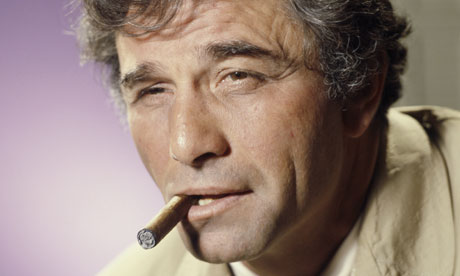I’m a Columbo fan. It’s a great way to while away a quiet afternoon watching the excellent, and sadly departed, Peter Falk trick another unsuspecting big shot into thinking he’s an idiot, when all the while he’s working the whole thing out. It’s structurally entertaining, shifting the drama to a battle of wits, by revealing the murderer’s identity in the first third, rather than following the traditional structure laid down by Agatha Christie, et al. It also contains some wonderful cameos, with each episode throwing us another Hollywood name who is either on their uppers, or just enjoyed the fun of the role.
What occurred to me the other day was the realization that it wasn’t just the show’s structure that made it different – it was its politics. Here is a mainstream American show that espouses a Marxist viewpoint (bear with me). Each episode of Columbo begins with a member of high society (the bourgeoisie) committing what they think is the perfect murder. The motive is invariably for financial gain, for the acquisition of capital. In walks Columbo, a classic member of the proletariat. He dresses badly, has a terrible car, and seems oblivious to the codes of behavior of ‘high society’. But through application of thought alone, and using his shabby status to expose the prejudices of the bourgeoisie (how could such a scruffy man possibly represent a threat?) he exposes the hollow, money grabbing elite for what they are. The show flips the assumptions of Capitalist society, that worth only comes through acquisition of capital, and shows how capitalist desire leads to an abandonment of moral principals. Columbo is above all a moral figure, loyal to his job, his wife and his dog. Set against this are the money grabbers, willing to kill anyone who comes in the way of their advancement.
PS. It’s also an example of the Daoist idea of the virtue of the small. Read the Te of Piglet by Benjamin Hoff for more of this.


Comments are closed.